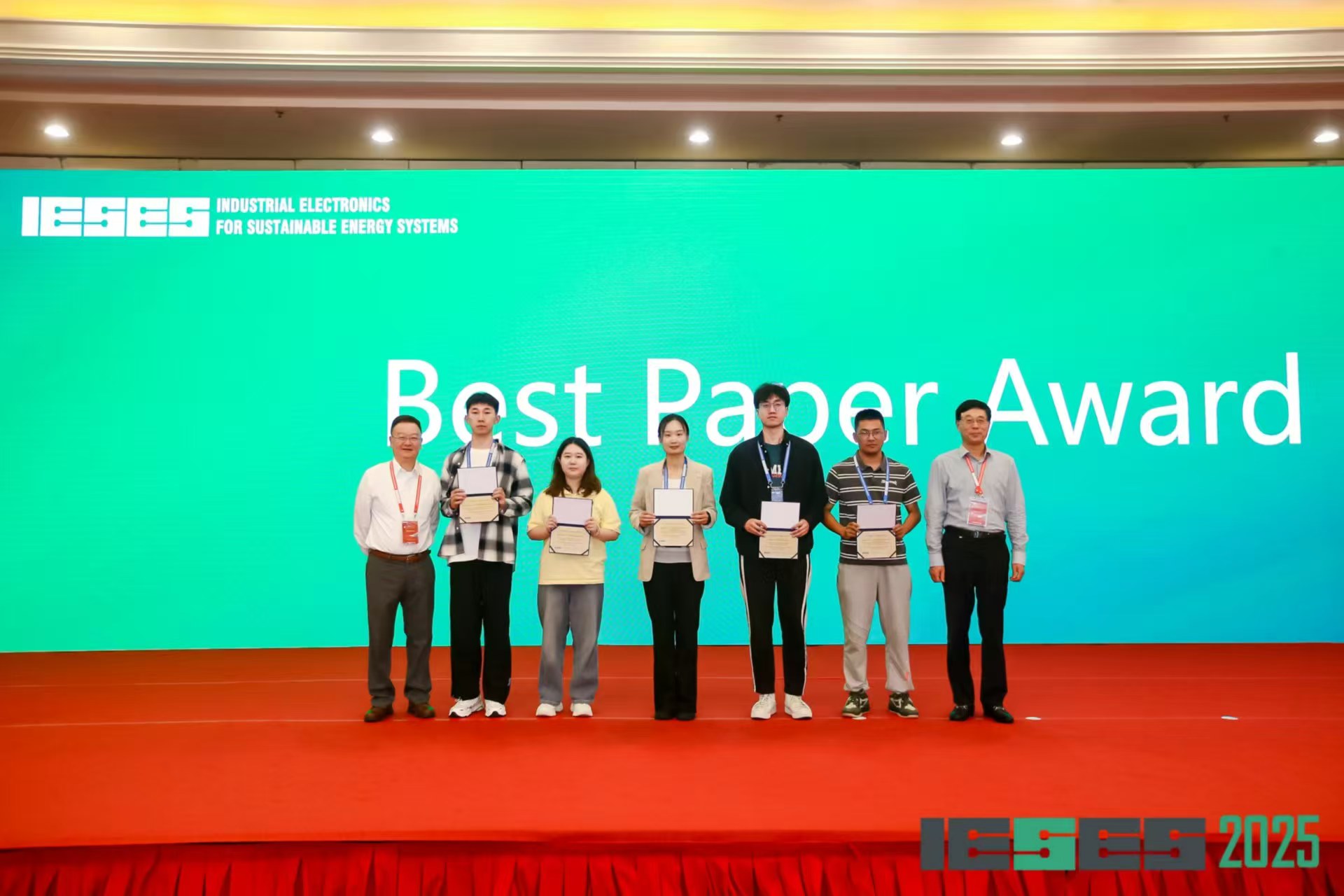The research paper “Multi-Objective Energy Scheduling with Fuzzy Logic-Based Weight Tuning for Disaster Relief” has recently received the Best Paper Award at the IEEE International Conference on Industrial Electronics for Sustainable Energy Systems (IESES) 2025. The master student Mr. Zhiyu Long from the ADAC lab is the first author, and Professor Mo-Yuen Chow is the corresponding author.

Research Overview:
Natural disasters, such as earthquakes, typhoons and floodings, can have a catastrophic impact on the human society. In these situations, effective and timely power supply is critical for supporting emergency response, medical services, communications, transportation, and other essential services during and after disasters. Microgrid technology can quickly incorporate distributed energy resources to provide local power supply in an islanding mode without reliance on the main grid, making it a promising solution for rapid power restoration after disasters. However, disaster environments are often highly dynamic and complex. The golden 72 hours rescue period and rapidly changing environmental conditions make microgrid energy management a highly time-sensitive task. One of the key challenges is how to properly adapt the objective functions under different operating conditions in this time-sensitive microgrid energy management to achieve timely responses.
To address this challenge, the paper presents an adaptive objective function framework for disaster relief microgrids as shown here. Specifically, an objective function library is first established, consisting of various objective functions designed for different disaster relief scenarios. From this library, multiple objectives are selected and combined into a single-objective optimization form through weighted aggregation, with the weight values representing their relative priorities. A fuzzy logic system, incorporating human expert knowledge as fuzzy rules, is then employed to adaptively assign appropriate weights to the selected objectives in response to the changing environmental conditions. Therefore, the priorities of different objectives can be automatically adjusted to reflect the latest disaster site conditions. Case studies have demonstrated the effectiveness of the proposed methodology in enhancing the adaptability of the microgrid energy management, making it well-suited for time-sensitive applications such as disaster relief.

